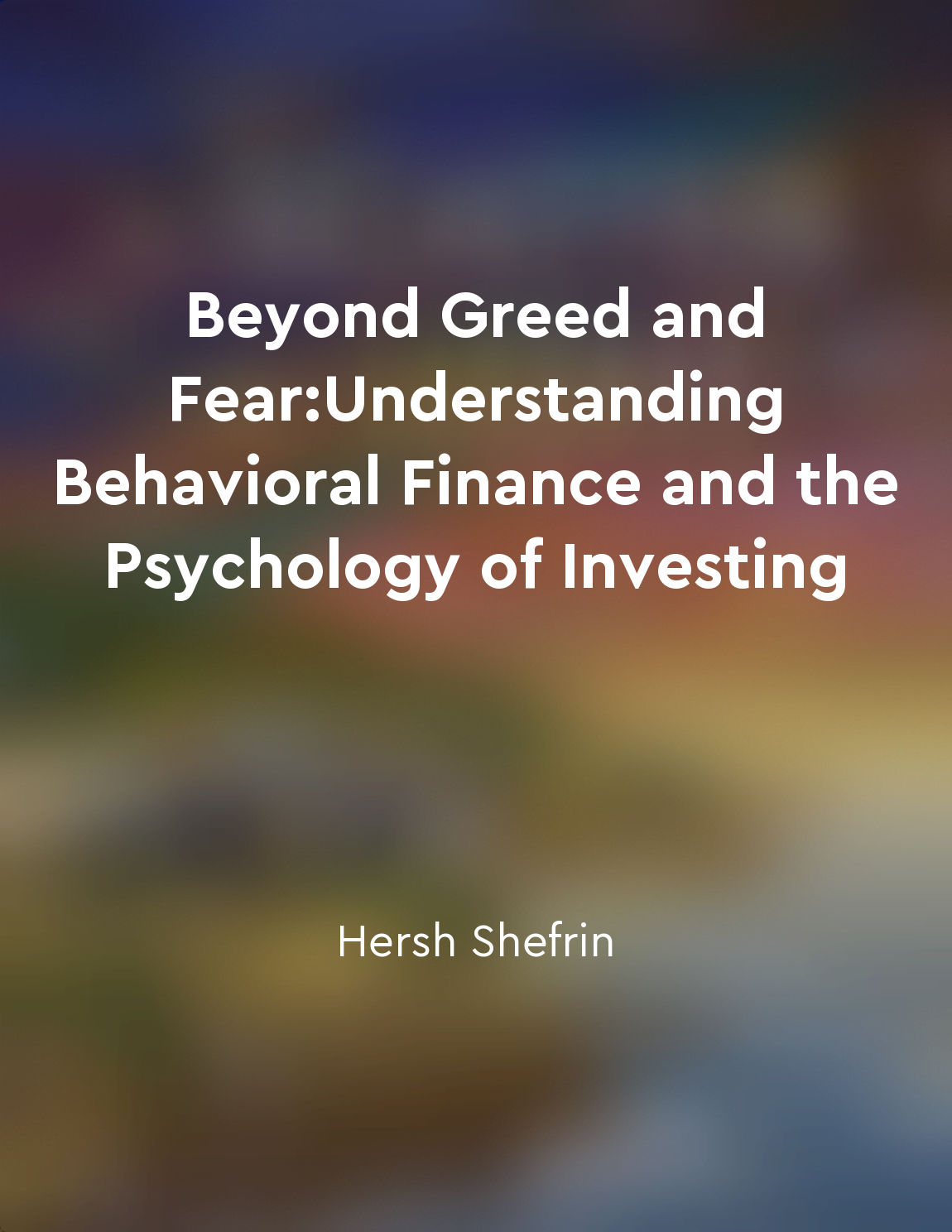Behavioral finance challenges traditional economic theories from "summary" of Advances in Behavioral Finance by Richard H. Thaler
Traditional economic theories assume that individuals are rational actors who make decisions based on careful weighing of costs and benefits. However, behavioral finance challenges this assumption by demonstrating that individuals often make irrational decisions due to cognitive biases and emotional influences. These deviations from rationality can have significant implications for asset pricing, market efficiency, and investment behavior. One of the key insights of behavioral finance is the recognition that individuals do not always act in their best interests when making financial decisions. For example, people may exhibit overconfidence bias, leading them to believe they have more knowledge or skill than they actually do. This overconfidence can result in excessive trading, higher transaction costs, and lower investment returns. Moreover, individuals may also fall prey to mental accounting, a phenomenon where they compartmentalize their money into different categories and make decisions based on these artificial boundaries. This can lead to suboptimal outcomes, as individuals may fail to consider the overall impact of their financial decisions on their overall wealth. Another important concept in behavioral finance is the idea of loss aversion, where individuals are more sensitive to losses than gains of the same magnitude. This asymmetry in risk preferences can lead to irrational decision-making, such as holding onto losing investments for too long in the hope of recovering losses. Furthermore, behavioral finance highlights the role of social influences and herd behavior in shaping financial decisions. Individuals may be influenced by the actions of others, leading to the formation of speculative bubbles or market crashes. This collective behavior can undermine the efficient market hypothesis, which assumes that all available information is reflected in asset prices.- Behavioral finance challenges traditional economic theories by introducing psychological and sociological factors that can influence financial decision-making. By understanding these behavioral biases and heuristics, researchers and practitioners can develop more accurate models of investor behavior and market dynamics. This interdisciplinary approach can offer valuable insights into the complexities of financial markets and help improve decision-making processes.
Similar Posts
Saving early and consistently is a wise move
The idea that saving early and consistently is a wise move might seem obvious, but the implications are more profound than they...

Mental shortcuts can lead to suboptimal investment choices
Investors often rely on mental shortcuts, or heuristics, to make decisions. These shortcuts are useful for simplifying complex ...
Financial education is key to success
Financial education is not just about learning how to manage money. It is about understanding how money works, how to make it w...
The importance of setting financial goals
Setting financial goals is a crucial aspect of managing our money effectively. Without clear goals in place, it becomes challen...
Financial planning is crucial for achieving longterm financial goals
Financial planning is the bedrock upon which long-term financial goals are built. It involves setting specific objectives, crea...
Build a financial safety net
Building a financial safety net is like creating a cushion for the uncertainties of life. It is a crucial step in securing your...
Set achievable financial goals and work towards them
Setting achievable financial goals is a crucial step towards financial success. It gives you a clear direction and purpose for ...
Discrepancy between real and perceived value triggers crashes
The discrepancy between real and perceived value can trigger crashes in financial markets. This occurs when investors' percepti...

Excessive optimism leads to speculative bubbles
Excessive optimism can be a dangerous sentiment when it comes to financial markets. It can lead to speculative bubbles that can...
Representativeness heuristic can result in inaccurate judgments
The representativeness heuristic is a mental shortcut that people use when making judgments about the probability of an event. ...

